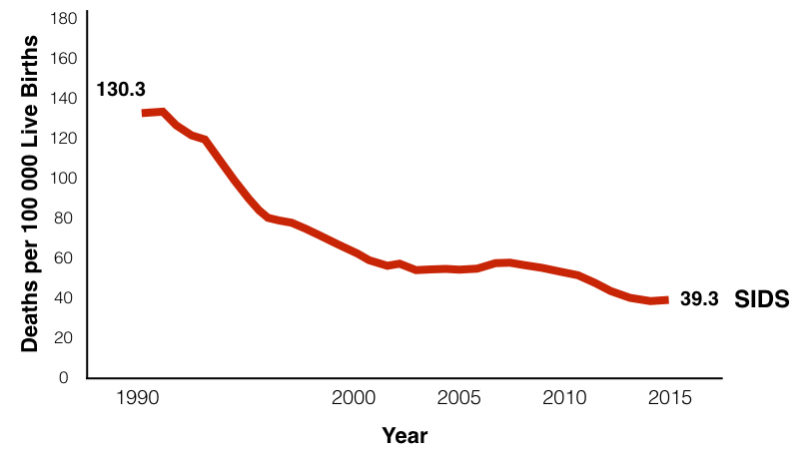Sudden infant death syndrome (SIDS) – also known as “cot death” – is the sudden, unexplained and unexpected death of an apparently healthy baby. This most commonly occurs between the age of 2 and 4 months. In the UK, just under 300 babies die suddenly and unexpectedly every year. These tragic events are more common in infants who were born prematurely or those born with a low birth weight. SIDS seems also to be more common in boys than in girls. SIDS usually occurs when a baby is asleep, although it can occasionally happen while they’re awake. The exact causes of SIDS are unknown but about 10 to 20% of SIDS cases are believed to be due to channelopathies, which are inherited defects in the ion channels which play an important role in the contraction of the heart. These anomalies can often be detected by an ECG (add link to ECG).
A recent study has shown that despite a reduction in sudden unexpected infant deaths from the early 1990s to the early 2000s, the rate has not further significantly decreased in the last 10 years. This requires a reassessment of the strategies to reduce SIDS risk factors, information of the public and identification of the preventable cardiac causes of SIDS.
Accepted recommendations to reduce the risk of sudden unexpected infant death are: a supine sleep position (tummy up), room sharing with the parents but without surface sharing (separate cot), creating a sleep environment without objects that can obstruct the infant’s airway, and avoiding exposure to tobacco smoke both before and after birth. Additionally breastfeeding is associated with lower rate of sudden infant death syndrome








